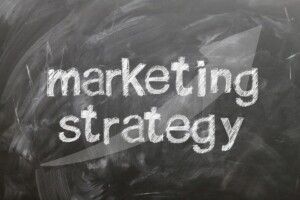7 Ways You Can Market Your New Business In Today’s Digital Age

The internet has completely transformed the marketing landscape. More than ever before, businesses today need to market themselves online in order to grow their businesses. For instance, as a hotelier, you can just google ‘ list hotel on airbnb
’ to see how easy it is. But with so many marketing options available, how do you choose which marketing strategy is right for you?
The key is to know your goals and your resources. If you have the time and resources to focus on marketing your new business, then you should consider marketing your new business in today’s digital age. If your goal is to build your email list, grow your social media following, establish more offline visibility, sell more products and services, and generate more leads, then you should consider marketing your new business in today’s digital age. If you’re looking for advice on how to market your new business, then you’ve come to the right place. Keep reading to learn 6 ways you can market your new business in today’s digital age.
Establish Ongoing Relationships
The best marketing strategy is useless if you have no one to market to. You want to establish ongoing relationships with your potential customers, and you can do that by marketing your new business in today’s digital age.
There are several ways you can do this. First, create an email list . An email list is a collection of people who want to hear from you. These are the people who would normally buy from you if you were a brick-and-mortar business. An email list gives you the ability to market your new business to these people when they are ready to buy.
Another great way to establish ongoing relationships with your potential customers is to build a strong social media following. Market your new business in today’s digital age through social media by sharing fun and educational posts, interacting with your fans and sharing photos and videos. This will allow you to become friends with your potential customers and foster ongoing relationships with them.
Use Digital Marketing Strategies
Digital marketing strategies are all about using the internet to your advantage.
There are many different ways you can use digital marketing strategies for your new business, and you should choose the ones that are most effective for your goals and audience.
Many digital marketing strategies are about building websites, building and maintaining an email list, building an online shop, and more. For example, you can use online advertising to drive traffic to your website. You can also use paid search tools such as Linchpin to drive traffic to your website.
If you’re new to the world of marketing, you don’t have to go it alone, either. You can always learn from those who bring the experience you could benefit from, to help you get the most out of the strategies you employ. Rather than hiring any old outsourced marketing service, it’s often wise to work with those who have specific expertise in your field. If you run a Software-as-a-Service business, then you may want to partner up with a B2B SaaS marketing consultant. That way, you can ensure that you’re getting advice and strategies better suited to your specific industry, market, and audience.
Serve up Content
Content is king when it comes to marketing your new business in today’s digital age. You may be thinking, “Content is crucial, but I don’t know where to start!” That’s okay; we’re here to help.
For example, you can create blog posts. Blog posts are great because you can do a lot with them. You can write about a variety of topics, share photos, and more. You can also use blog posts to promote your products and services.
Use Paid Advertising
Paid advertising is one of the most effective digital marketing strategies for your new business. You can use many different paid advertising methods for your new business, and you’ll want to choose the one that is most effective for your goals and audience. For example, you can use search engine ads to drive traffic to your website. You can also use paid social media ads to create ongoing relationships with your customers and fans. You can use display ads, email ads, and more.
A good idea is to use paid ads across different platforms so you can maximize the effectiveness of your campaigns.
Create an effective PR/Events Strategy
PR and events strategies are a great way to create hype around your products and services. For example, if you make a nutritional supplement, you could create a big announcement around a special event related to the supplement, or you could get the media involved in creating buzz around the event.
You can also do a lot with PR and events strategies. For example, you can create a contest around your company, have an investor’s day, have an employee recognition day, have a customer appreciation day, and more.
Email Marketing
Another option worth considering is email marketing. While many people assume that email marketing is dead, this isn’t the case. Open rates for emails is low but you can change this by taking a more personal approach, creating segmented lists that are more likely to convert. You can also use a free email verifier to guarantee that you are sending all those emails to the right people.
Conclusion
Starting a new business can be challenging, especially when launching online. To succeed in today’s digital economy, it’s essential to market your new business in today’s digital age.
You may be wondering what marketing strategies work best for your new business, and you’ll want to choose the one that is most effective for your goals and audience.
Digital marketing strategies can help you reach your audience, build your brand, and succeed in today’s business environment.


